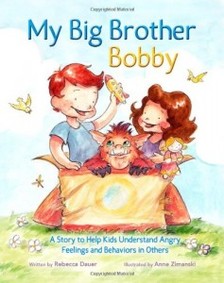 Being angry, seeing red, meltdowns, and freaking out are just a few words we have to describe what happens when a person loses control of themselves. My Big Brother Bobby: Understand Angry Feelings and Behaviors of Others by Rebecca Dauer helps siblings, classmates, friends and other family members to understand children who struggle with emotional and behavioral problems. For some of our children their lives or their environment become overwhelming. They just can’t deal with all the sensory bombardments and may act out, withdraw, become emotional, run, etc. My Big Brother Bobby is a fun, imaginative story that educates children on the importance of understanding and coping with anger in others in a warm and easy to understand way. It isn’t your typical children’s book. It is more of a communication bridge between parents, social workers, OTs, psychologists and children who are dealing with emotional issues, specifically those living with siblings with angry outbursts. Rebecca’s blog is a wealth of information about siblings of children with special needs. We thank Rebecca Dauer for her guest post introducing her book and agreeing to take part in our Author Interview Series. Lorna: Congratulations of your book, My Big Brother Bobby: Understand Angry Feelings and Behaviors of Others. What is the story behind this book? Why did you think a book on this topic was needed? <<Rebecca Dauer: The story behind the book is loosely based on stories from friends and family as well as my personal experiences. When I was younger, there was very little materials or outlets for siblings and I felt the need to change it. After doing research for the book, I found an immense amount of support from the sibling community. Everyone can relate to this book, whether it is a parent, sibling, cousin or friend who has a monster in their belly, it is hard on everyone and especially for young children. I wanted to bring to light the real struggles and emotions that children have and to bridge the communication gap for parents and health professionals.>> Lorna: You and the illustrator, Annie Zimanski, make a very good team. Annie’s illustrations bring your story to life! Usually how does the author of a picture book work with the illustrator? It seems to me there is a lot of communication that most go on to finish with a beautiful book like My Big Brother Bobby. <<Rebecca Dauer: Great question! I found Annie on elance.com after searching through several children’s book illustrators. I loved her work and she related well to the book. The first step in the process is to understand the story and then, creating the characters in the right medium. For example, they could look digital, acrylic or have a soft pastel look. Each change of color, character and background give a different look and feel to the book. Once the characters are built, then you break down each illustration by page with a sketch. Once each page is sketched and tweaks have been made, full color and background detail is added. Then there are a few final edits and that’s it! I enjoyed working with Annie and would recommend her to anyone looking for a great illustrator.>> Lorna: Is this your first book? You chose to self-publish it. What advice do you have for other authors who are thinking of self-publishing their book? <<Rebecca Dauer: Yes this is my first book. Self-publishing is a bit more streamlined and inexpensive because you don’t need an agent or wait until you are signed. If you have a PDF version of your book, you simple buy an ISBN and upload online. I used CreateSpace through amazon where books are purchased on demand. I was also able to add the book to the app store. I also became a member of the Independent Book Publishing Association (IBPA) for its resources and helpful guides into the publishing world. I recommend using those, becoming a member of IBPA, creating a website and promoting through social media.>> Lorna: In your book you mention a support organization for siblings, Sibling Leandership Network and the Sibling Support Project. Please tell us what they offer siblings. <<Rebecca Dauer: The SLN and the Sibling Support Project are completely dedicated to helping the siblings of children who are physically or mentally disabled. The SLN provides siblings of individuals with disabilities the information, support and tools to advocate for their brother or sister to promote the issues important to them and their entire family. They are also very involved in policy and advocacy. The Sibling Support Project headed by Don Meyer (who wrote a review for my book) is a national effort dedicated to the life-long concerns of brother and sisters of people who have special health, developmental, or mental health concerns. Sibshops are International and give children a community-based peer support program and provide awareness of siblings unique, lifelong, and ever changing concerns through workshops, websites, and written material. It is an amazing community and organization. If you would like more information, please visit below: -To keep reading the article please click: HERE
0 Comments
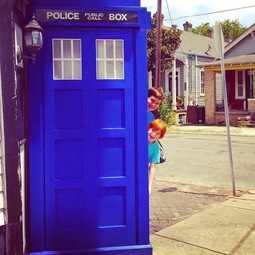 *Editor's note: The following was a conversation I was lucky to be privy to between my two sons, over the course of about twenty minutes. I've omitted several things for privacy, and cleaned up others, while trying to keep the language as close to the original conversation as possible. I received both sons' permissions before publishing this. "Morgan," Bay asked, "what's it like to be you?" The question was asked as the boys finished dinner and I sat away from them, reading a book. I marked my place and quietly listened. "Well," Morgan said, "it's confusing. You know I'm an autism kid. Noises are big. Clothes have to be soft. Smells are hard." He went back to eating, apparently satisfied with his answers. "But, Morgan, what's it like? Why is it confusing to be you?" Morgan took a deep breath, pondered this question some, and then said, haltingly, "People think I don't listen, but I do. Teacher always says, 'Pay attention, sweet boy!' but I am paying attention. It's hard. I pay attention to everything, all at the same time. I can't pay attention to just one thing... I can't always use my words." "There are all of these sounds and thinks (thoughts) and I can't just pick one. Can you?" I sat, stunned. Morgan's never talked to his father or I like this. He's never really been able or rather, we've never been able, to get him to talk to us like this. "Morgan," his brother started, "why do you script? Why do you use Thomas so much and love him so much?" "I just do. The stories are in my head, 'cause I'm a narrator. I love Thomas, he's my friend. He's a very useful, cheeky engine." "But you know, other kids don't like him as much, right? I mean, aren't you worried about bullies? Why do you talk like that (meaning nasally quality/monotone and scripting)?" "I don't care if they don't like him, Mama says he's mine to love. Mama and Daddy say bullies just don't get hugged enough. I told you- I talk like this 'cause Jesus made me this way. Now, stop being a bossy boiler or this conversation is over!" (note the script) Me: "Morgan, is there anything that's really hard for you?" "Yeah, people when they give me too many directions. That's hard." Having my own struggles with this, I agreed with him. "Going new places used to be bad, but sometimes it's fun now. But not too much. Rounding (numbers). Noise. Making people understand me." "Haircuts used to be really hard, right?" "Yep, but they're not so bad now. The hairs still feel like poking on my skin, and I'm scared my ears'll be chopped off." "Mama won't cut your ears off-" "But I feel the scissors coming in! My brain tells me my ears are in danger and I need to yell!" Me: "What would you make people understand?" "I need to chuff (when he makes train noises and moves his arms in a circular motion, bent at the elbows). Ya know, trees stim? I'm a good boy and really useful. Don't talk about me in front of me. Kids shouldn't make fun, the grown ups, either. It's mean. People should understand people." I started tearing up. Bay: "What's easy for you? You're good at lots." "Making breakfast (he makes English muffins with cream cheese every morning for himself). Thomas stories. Tying my shoes. Making train sets. Snuggling. Smiling. Laughing. Swimming. Remembering the way." To read the rest of this amazing article click here: http://www.decipher-morgan.com/2014/10/what-its-like.html 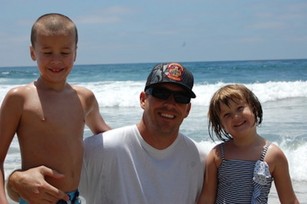 Below is a letter I’ve written to my daughter. She’s the younger of our two kids. But I already see that in some situations, she takes the big sister role. I so badly want her to understand her brother’s autism. I know she notices that he gets more attention than she does… and I don’t think it will stop. Anyways, here it is. Dear Lucy, I’ve been thinking about writing this letter to you for about a year now. In that time, I’ve been noticing you noticing me… and it hasn’t always been positive. For the most part I think I’ve been doing a pretty good job as a parent and daddy. But I know I’m letting you down in a crucial area of your life, and I’m not sure that I can stop. In the last couple of weeks, I’ve made you cry, and it breaks my heart because I know it will not be the last time I do so. I’ve ignored you, favored your brother, and I know it hurts your heart. I just want to let you know — I’m aware of this, and it hurts my heart too. You’re the baby of our family, and as much as I want you to always be Daddy’s baby, I also want you to grow up quickly so you can gain a certain amount of understanding. I guess I want this for you so I don’t feel like I’m damaging you as much. You see, your older brother has autism, and I fear that it takes from you at times. I started a nonprofit organization because of your brother, in hopes that we could help other families. It takes up a ton of my time. When you ask me to play while I’m working, I tell you, “No” way more than I tell you, “Yes.” I see that it breaks your heart. It breaks mine too. The local news did a interview with me, and your brother was in it. You watched it and didn’t understand why you weren’t included. I didn’t have a good answer. I didn’t think you would understand. We shot a brand new “About Us” video, and you asked me, with tears in your eyes, “Why am I not in that video?” Once again, I didn’t have a good answer for you. You left the room, and then the tears hit my eyes. Your brother has behavior therapy twice a week for two and a half hours a session and a socialization class once a week. You don’t understand why you don’t get to do these things. I try to explain it. I clearly don’t do a good job. You’re developing at a rapid pace, and I’m in constant amazement at how easy you learn. It also serves as a constant reminder that your brother doesn’t have it this easy. I need to stop and celebrate you more. You deserve it. You and your brother are playing on the same soccer team for the first time, and you’re holding your own with these older kids. Daddy is so proud of you! But, if I’m being honest, I catch myself watching your brother more than I watch you. And it’s not fair to you. I think it’s because I expect you to keep getting better. When I watch him, I’m hoping he gets better. I’ve tried a couple of times to explain autism to you. I’m pretty sure you don’t fully understand. I’m not sure why I expect you to, when most people 10 times your age don’t get it. Someday you will… I just wish it was today. Please know that Daddy is doing his best and also know that he wants to do better. I love you way more than you know. For original article: http://themighty.com/2014/09/a-letter-to-my-daughter-about-her-brothers-disability/ Here is an essay written by Stephanie. She is a sibling who has a brother that struggles with his behavior. She sometimes gets blamed for her brothers actions and has a hard time understanding why he does what he does. Read her story below:
Hello, I’m stephanie. I am 11 years old. My brother Aaron has a condition that they are trying to find, his behaviour can sometimes have a effect on people and my friend’s. His shouting, hitting and not sharing makes me feel upset and I’m often left out if he wishes to tag along. No matter how many times I try to explain and keep the peace a fight always breaks out and I’m left in the middle. My friends don’t understand his good side, his funny jokes and random kisses, they only see the bad side. It can hurt when I get blamed for my brothers actions when we go out to play on the drive but I know it’s not his fault. Mum and dad are always stepping in to stop arguments breaking out between the kid’s that live on our street over something Aaron as said or done. His new friend Charlie is patient with Aaron’s pestering,pushing and hitting because he knows Aaron is quirky. My dad is at work most of the time and my mum is cleaning up the mess my brother makes and tries to explain that he just want friends. I get upset when my mum cries when mums and dads start to shout my brother is a menace, I cry when im asked to leave him and play in their garden where he’s not allowed. Our home is Aaron. Mum and dad try to share their time between me and Aaron, iI love my brother but I don’t love his illness, nobody see’s the Aaron we know and LOVE, they see the menace To Read more click here: http://undiagnosed.org.uk/archives/3814 Some disabled children need help to behave well. This can be very annoying for siblings who can get fed up with coping with difficult behavior. Sometimes when your brother or sister behaves badly it may seem funny and it maybe makes you laugh. Sometimes you may tease your brother or sister and this may end up with them getting angry, throwing things or hurting you. The best thing for you and them is to encourage your disabled brother or sister to behave well. SOME THINGS YOU CAN DO ARE
To see the full article click here: http://www.youngsibs.org.uk/info/helping-your-brother-or-sister-to-behave-well/ 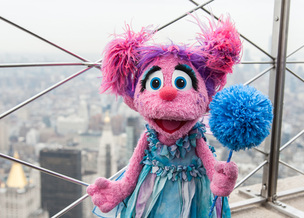 The nonprofit behind Big Bird, Elmo and Abby Cadabby is launching a new effort to reduce stigma surrounding kids with autism and help those with the developmental disorder learn life skills. Through a new initiative dubbed “See Amazing in All Children,” Sesame Workshop said it will create digital tools to help children with autism learn to play with others and complete everyday activities like brushing teeth, getting dressed and trying new foods. In addition, the organization said it will use Sesame Street’s brand and characters to educate the public about autism and emphasize that kids on the spectrum are much like their typically developing peers. “This has become one of the most widely-discussed topics in childhood development, yet we have found that there’s a lack of understanding among the general public about children with autism,” said Jeanette Betancourt, Sesame Workshop’s senior vice president for community and family engagement. “Sesame Workshop has a long history of addressing diversity, acceptance and inclusion, and we felt we could play a critical role in reducing misconceptions by highlighting the commonalities children with autism share with all children.” Beyond its efforts aimed at children, Sesame Workshop said it also plans to work with Exceptional Minds, a Sherman Oaks, Calif. vocational center that teaches young adults with autism computer animation and post-production skills, to help create content. http://www.disabilityscoop.com/2014/04/04/sesame-street-autism/19257/ 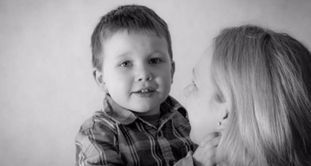 A young schoolgirl touched the heart of her teacher when she wrote an essay wishing her brother could be “healed of autism”. “Every person needs a Rachel in their lives,” wrote Co Meath teacher Kathryn Lenaghan, after she read the impromptu essay by nine-year-old Rachel Cahill. Although written in February, her mother Caroline Cahill asked for the letter to be highlighted for World Autism Awareness Day, which is tomorrow, April 2nd. The third class student began the essay after she had finished her day’s work at St Paul’s NS in Navan. Titled “I wish, I wish, I wish,” she begins: “Since my little brother Matthew was two, I have always had the same wish. When Matthew was two, he was diagnosed with autism. Autism has no cure. Some children with autism can talk, understand and communicate, but Matthew can’t. “When you have autism, your brain is different. Matthew would hear things more loudly than us, he feels things more differently and sees things we don’t. So ever since Matthew was diagnosed with autism, my wish was for Matthew’s autism to be healed.” Click here to read more: http://www.irishtimes.com/news/health/i-wish-i-wish-i-wish-my-brother-could-be-healed-of-autism-1.1745836 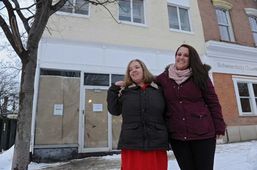 Sara Mae Hickey knew she wanted to be a difference maker for a long time. She considered the Peace Corps after she graduated fromSkidmore in 2012, but she soon realized her most important cause was at home — her sister Emily. And so at 23, Hickey is the owner of Puzzles Bakery & Cafe, which is set to open sometime between April and June at 515 State St. in Schenectady and will employ adults on the autism spectrum and who have other disabilities, a group studies have shown to be severely underemployed. She's also the president and founder of the nonprofit The Autism Initiative, which helps provide educational and recreational programming to those in the autism community. Hickey's sister Emily, who is on the cusp of turning 21, has autism and is considered low-functioning. She requires constant care, has a limited vocabulary for her age and is unable to live on her own. When Hickey was in kindergarten, she toted a pamphlet about autism along to class, a result of her parents' longtime involvement with the local chapter of the Autism Society of America. In a lot of ways, Emily's disability shaped Hickey's path. "My whole life she's always been a big inspiration to me. I've always seen the bigger picture. We know so many families who are affected by this disability," says Hickey, who has bachelor's degrees in anthropology and government from Skidmore College and a master's certificate in nonprofit management from SUNY Purchase. "I don't think everyone really understands it's a lifelong disability. These children become adults, and they live a very long time." To read more: http://www.timesunion.com/default/article/Puzzles-to-fill-a-special-need-5261216.php#photo-5931224 For more on The Autism Initiative, visit theautisminitiative.org. For more on Puzzles Bakery & Cafe, visit www.facebook.com/Puzzles.Bakery.Cafe Contact Sara Mae Hickey about either organization at [email protected]. 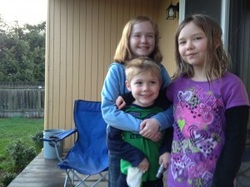 There is so much to say to you all, you fierce soldiers of breakthrough. You grow up in the same house as one they call “special,” and that carries more weight than we understand. It means that your parents’ eyes look past you. That we take it for granted that you are whole even when you are not. It means that you give and give and give. Every big sister shares with her siblings, but most of them don’t give away their entire portion. You do it. Often. You watched your brother grow bigger but not older. We had that talk, introducing you to that mysterious word, “autism,” but you already knew something was wrong. When did you figure it out? Was it when you saw other boys trying to play with him? Or when he threw himself on the floor and screamed in the lobby of the bank? I hope it was something like that, and not something we, your parents, did. Because I’m sure you saw the change in us, too. We traded in our laughter for dark clouds and chronic busyness—not just from the doctors’ appointments, but from the other appointments, too. The ones that took our joy and concentration even when we sat next to you on the sofa. To read more click here: http://www.jasonhague.com/2013/02/25/a-salute-to-the-siblings-of-autism/ Carly Fleischmann has autism and cannot speak. She communicates with her family and the wider world using computers and tablets -- a skill she began to develop when she was 10, and for years, has been an advocate for autism awareness. One of the 18-year-old's most creative communications, a 2012 short film called"Carly's Cafe," presents a typical coffee shop outing as the teenager herself would experience it: She can't express what she wants out loud -- be it a cup of coffee or the chance to spend her evening doing something without her sister -- and as the video progresses, spectators get a sense (briefly) of a world where basic interactions are beyond their control. The film was released along with a complementary website that received a Silver Lion in the Cyber Lions category of the Cannes Lions Awards. It is based on an excerpt from the book the 18-year-old and her dad, Arthur Fleischmann, co-wrote. "Carly's Cafe" gained attention after its release and was shown at the UN Convention on the Rights of People with Disabilities. It closes with Carly's message: "Everyone has an inner voice. I found a way to let mine out." What am amazing person to be able to do this. It gives people a different perspective with in inside look into Autism. I first found this article on the Autism Now FB Page: https://www.facebook.com/AutismNowCenter To read more about Carly please visit her website at: http://carlysvoice.com/ 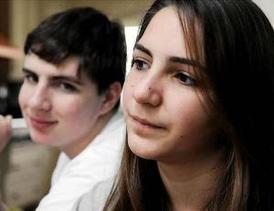 When Gabby Abramowitz was younger, she was cautious about inviting new friends to the house. She wasn't sure how they would react to her younger brother, Ben, who is autistic. And she didn't want a repeat of the Simpsons incident. That was the time she had a friend over for dinner, and Ben sat at the table reciting the entire "Treehouse of Horror" Simpsons Halloween special. Gabby pleaded with him to stop, but he persisted. "My friend was like, 'What's going on?' and then started laughing," she said.At that time, she was in elementary school and lacked the words and understanding to explain her brother's condition. But with the help of her parents and through her own study, Gabby, now 16 and a sophomore at Tenafly High School, has grown to understand the nuances of autism and often speaks out to teach her peers while growing closer to Ben, 14. Through her research, she found that her experiences, and those of others like her, often are overlooked. "I think the effect on siblings is underestimated. We get pushed into the background." Read more: http://www.autismsupportnetwork.com/news/autisms-effect-normal-siblings-09277321#ixzz2v2F3NBHL Here with a short video Spencer Timme made about what it is like to have an older brother with autism. He writes: I hope you enjoy it and see how blessed I am to have Mitchel as my brother. I love him to death and I want everyone to see how awesome our bond is! *note, every case of autism is different some more severe than others, not every autistic person is like my brother. This video speaks on behalf of my personal relationship with my brother. |
AuthorRebecca is an independent publisher working to help siblings of children with emotional challenges. Archives
April 2017
Categories
All
|
My Big Brother Bobby: A Story to Help Kids Understand Angry Feelings and Behaviors in Others
 RSS Feed
RSS Feed
